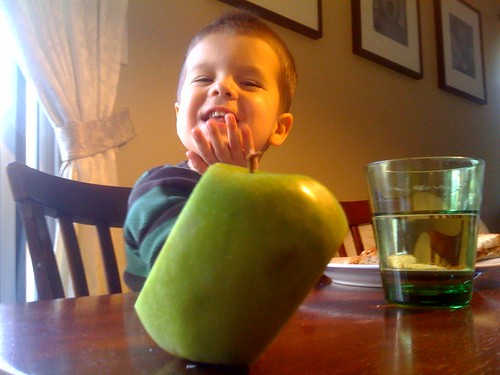
My oldest son and I were talking the other day about how plants are so important to us because they take our poop and turn it into food. I know a couple of corners had to be cut to arrive at this conclusion, but bear in mind the kid is three years old.
We all can stand to remember where our food comes from and meditate for a hot minute on the way beauty emerges from less tasteful circumstances.
People from my world are addicted to superficiality. We prefer big new chain grocery stores to cruddy local markets, chemically-greened lawns to pulling weeds, leather interiors on our inefficient modes of transportation to the sights and smells of Muni, Fung-Shui'd empty living rooms to the messiness of cramped and crammed community, celebrity gossip to the real-life stories of less lovely neighbors and less-resources neighborhoods.
I like the idea of emergence precisely because embedded in the term is this imagery of decomposition. It's more than the rummage sale of Phyllis Tickle's Great Emergence -- it's the compost pile of the catholic Church's sordid love affair with anything not sourced in our beautiful Savior. We experience all these little deaths: the end of a project, a career, a dream, a relationship; and through these crises the lens through which we experience God and people and stuff shifts. This is what's common to us all, and cuts through the artifice of titles, position, and status -- that whether your name is Tickle, Jones, Pagitt, Scandrette or O'Hara, you're emerging from the death of Self and into the convergence of our story with the story of God.
In the new year, as balls and bombs drop, may we escape the illusion of superficial beauty and walk--no, run! --away from the slumbering suburbs and chic gentrified urban hamlets, let's buy local, let's ride our bikes and ride our trains, let's allow strange people into our imperfect living rooms and lives, let's read to kids in the neighborhoods we're too afraid to move into, and through it all, let's run into the arms of Shalom's very embodiment, Jesus who loved us and gave himself for us.
Or how about simply this: what if we treated Jesus less like a charm on our bracelets and more like our Rabbi, our Master Teacher? Would we be any different after a year of re-learning from Jesus what it means to be human?





No comments:
Post a Comment